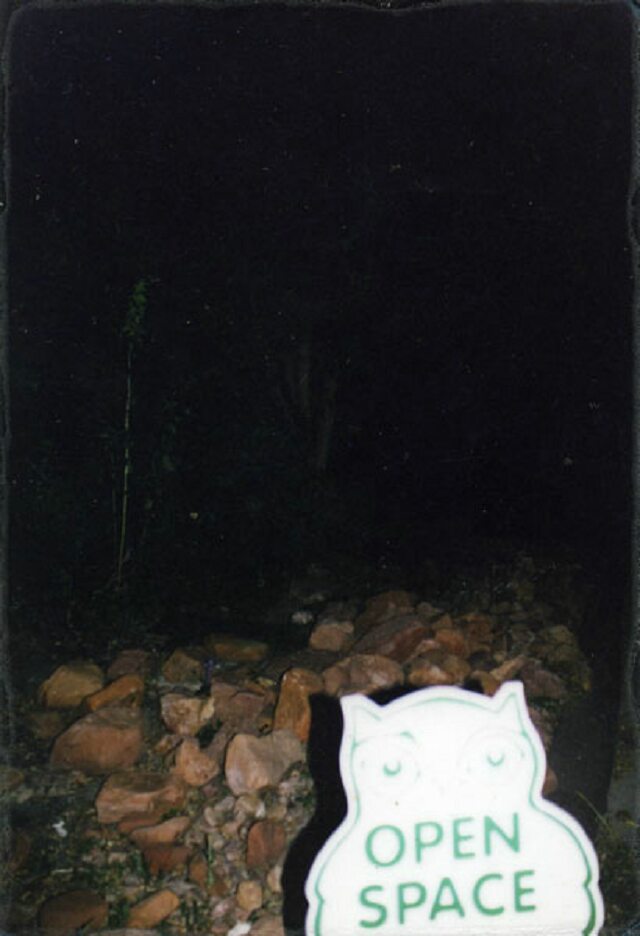Open Space
WATCH THIS CARD AS A VIDEO
There needs to be open space for novelty and transformation in our lives. It's hard to grow something new in an already overcrowded space. What we often don't realize about a loss, the dark night of the soul, or an absence, is the space it opens up where new life can grow. The Latin phrase "horror vacui," commonly stated as "nature abhors a vacuum" by Spinoza and others, is a principle of physical and biological nature. Certainly, the ego, which is a part of nature, has a horror vacui. Egos tend to fear emptiness and prefer to fill up all the unformed spaces with stuff, activity, people, and places. But the more the ego fills up all the unformed space in our lives, the less chance there is for life to find its serendipitous ways to fill that space with something new. For many, the ego's compulsive space-filling is most obvious interpersonally. Some people are terrified to be unattached to one romantic partner or another. When space opens up, their ego anxiously asserts itself: Well I have to be going out with someone, maybe I should try this person, or maybe that one? Maybe I should register with an online dating service? Maybe I should… The last thing such an ego would consider is that maybe it should do nothing. When the interpersonal space in your life is filled up, there is much less room for some new and unexpected person. There is also less room for something that is not interpersonal, but which may need that space to grow. The ego tends to be anxious about empty spaces in any area of our lives and interprets those as deficiencies and deprivations that urgently need to be filled up. In conversations, silences may be viewed as anxious "dead air time" abhorred by nervous egos who fill the space with chatter. But a silent moment between persons can be a thoughtful, soulful pause, a chance to reflect before reentering the word stream. Debussy said," Music is the space between the notes." Silence between people isn't just to reflect privately but may also allow us to sense subtle tendrils of feeling flowing in the mutual space. Similarly, with the creative process, no one should expect perpetual access to the creative muse. People who have built an ego identity around being a writer, composer, artist, etc., often churn out mediocrity. They feel they must always be doing their art, or they'd experience a catastrophic loss of identity. For example, some writers will talk about "writer's block" and being "blocked" as though they were undergoing a major illness. But "writer" was not stamped on their birth certificate. No one guaranteed they'd have stuff to write about for their entire lives. There are fallow periods in the creative process, and if you nervously try to fill those spaces, you end up churning out mediocrity rather than channeling inspiration. So far, my creative well has never been dry, but that's largely because I don't force things. I go where my muse directs, which is not always where I think it should. Years ago, I tried to force access to Parallel Journeys, the sci-fi/fantasy epic I had intended to write since the summer of 1978. For decades, I felt I "should" be working away on it and would "should" on myself when I wasn't. In the course of writing my essay on the creative process, The Path of the Numinous, however, it became clear to me that following the creative muse meant also following it into empty spaces where unexpected discoveries happen. When I let go of Parallel Journeys as the thing I should be working on, I found that the muse filled that space with all sorts of other stuff. I'm a generalist and refuse to identify myself as specifically a non-fiction writer, fiction writer, photographer, oracle creator, paranormal researcher, philosopher, etc. I want my creativity to be motivated by content, not identity. When one form of creativity dries up for a time, I usually find that another springs to life in that unformed space. In other cases, what comes in to fill up the unformed space is relationship, travel, or taking in the creative work of others. If I should ever find a time when the well was dry, I would consider that the golden opportunity to read all the books I haven't had time to read and to research various subjects I've had to neglect to keep up with my writing. Consider this an auspicious time to welcome open spaces. If space opened up as the result of a loss or shock see "Dealing with Shock" in A Guide to the Perplexed Interdimensional Traveler.
According to my philosophy, Dynamic Paradoxicalism, the opposite of a profound truth is another profound truth. See the other perspective here: Is Emptiness Overrated? |
||||||||



